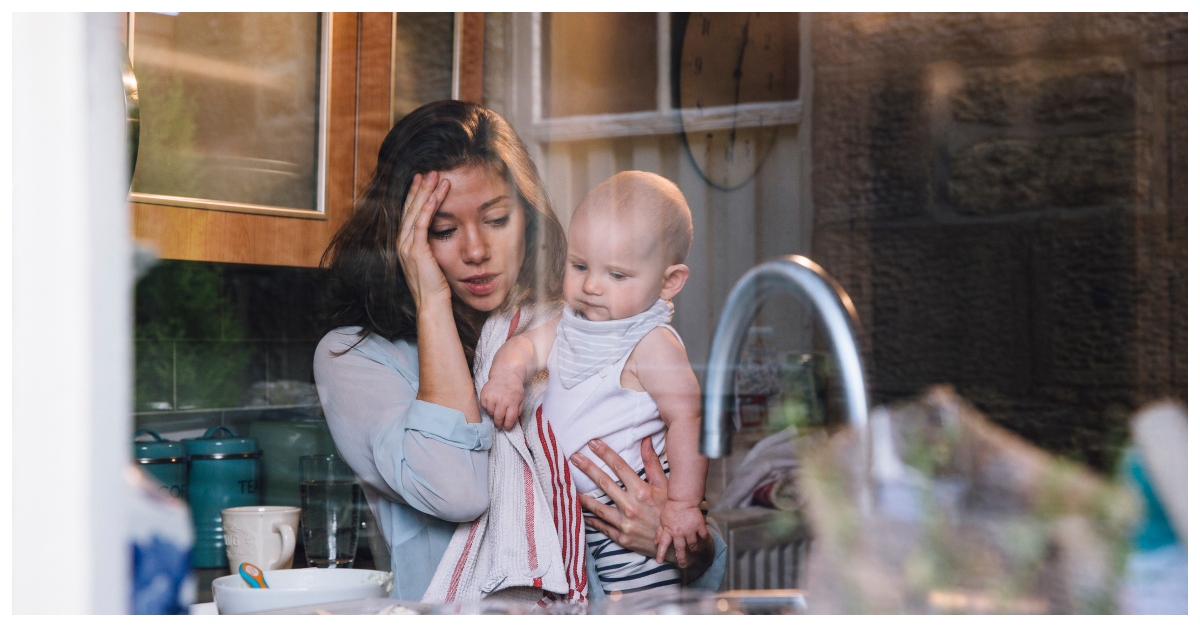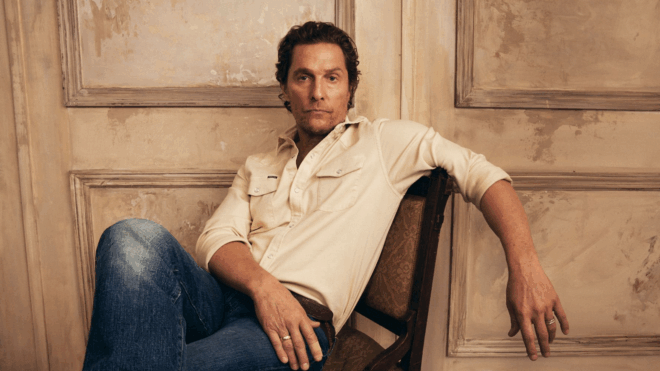
Two years ago, I was in a dark place, emotionally. While in the past, I'd definitely been through some minor mental health struggles — though I'm not sure I recognized it — I'd never been so low that I couldn't physically get out of bed. But in January of 2019, that's exactly what happened.
It came after I'd separated from my husband of eight years. The first real relationship I'd had since the end of my marriage had dissolved. And between my heartbreak and the stress of being a single parent — financial and otherwise — I felt beyond overwhelmed and helpless.
After days of crying and barely being able to lift my head off my pillow, I drove myself to the hospital, where I stayed in the psychiatric unit for three days. My kids thought I was suffering from migraines. At the time, I didn't know when, or if, I'd tell them the truth, which was that I went through a serious bout of depression, was afraid of and for myself, and needed help.
Ultimately, I realized that being open about my own mental health with my kids was massively important.
When I checked myself into the hospital, my two kids were 4 and 8. I stayed for a few days, pacing the hallways and crying my eyes out, and when I got home, I still wasn't myself. I was, for the first time in my life, on an antidepressant. It took about two more weeks of adjusting to the medication before the fog of depression started to lift.
I wondered if my daughter, who is my older child, knew something was wrong with me mentally. She never asked pointed questions and seemed to accept my lie — that I was having intense migraines and needed treatment — as the truth. Still, I felt guilty about my mental state and that I wasn't being honest.
For the past two years, the time didn't really feel right to tell either of my kids about my time in the hospital, or that my mental health was something I really needed to stay on top of, maybe more than most people. But as my daughter got older and became a full-blown tween instead of a little girl, I knew the time was growing near. My kid started to become moody and was spending a lot of time in her room. And while I knew a lot of it was likely normal tween behavior, I couldn't help but worry.
Now that I have a better understanding of my own mental health, I realize that my lows have always been a part of my life. And it actually started earlier than I was able to recognize at the time. I was probably around my daughter's age when I started to feel the world weighing heavily on me. Sometimes, I felt like there was something wrong with me. But I didn't have the right lens to really look at or understand my own mental health.
Mental health issues, like anxiety and depression, are very hereditary, though. And many people in my family have the same issues — some of them have had far worse struggles than me. I hate to think about it, but it's not unlikely that one or both of my children will inherit those same issues.
Recently, my daughter and I got to talking about mental health during the tween and teen years. And I knew it was my opportunity to share my experience with her. So I told her about the time I spent in the hospital. I told her that I was overwhelmed and hurting and that I needed to take care of myself. I also told her that I wasn't ashamed or embarrassed that any of it had happened, either.
She listened intently and seemed to absorb what I was telling her. My daughter is only 10½, but she's pretty perceptive. And while I know there's still a lot for her to learn about the importance of understanding her own mental health, I think she understood why I was bringing it up. At the very least, she knows that mental health is an important part of her overall health and that it's not something to avoid talking about.
The thing is, when I was a kid, people didn't talk about mental health in the same way that we do now. There's still a long way to go in terms of erasing the stigma surrounding mental health issues. But for kids these days, even knowing that issues like anxiety and depression, among others, not only exist but run pretty rampant in our society means they are already ahead of where I was as a child. The fact is, most of us who are parents now didn't understand our own mental health until something went terribly wrong.
Going to the hospital two winters ago was not my finest moment. But it was also a catalyst to feeling better and living a better life. My hope for both of my children is that if they have issues similar to what I've experienced, as well as others in our family, they'll be a bit more in tune than I was. Maybe they'll be able to vocalize how they feel in a better way than I could. Maybe they won't suffer as much as I did when I was young.
It's not easy to open up to our kids about our own mental health struggles. But the thing is, arming them with information may actually protect them. There is not much we can do to change our kids' brain chemistry. However, there is so much we can do to help them feel comfortable letting us in on it.
As a mother who has mental health issues, like so many others, all I can do is be honest about the dark places I've been to. Hopefully, it'll be enough that when the time comes, they will feel comfortable revealing their own truths right back.




